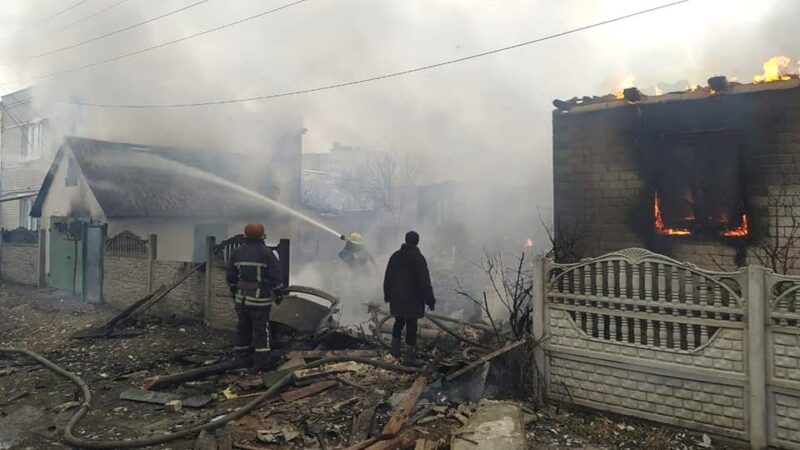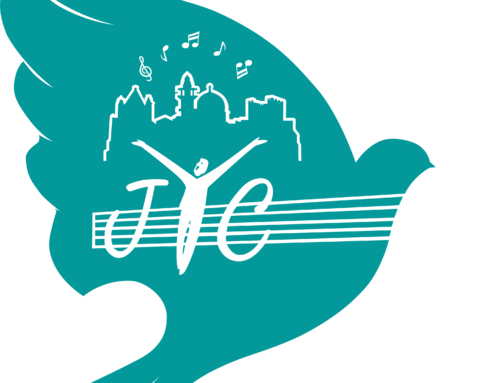The New World (Dis)Order
By Paul Scham
Like many of my readers, I suspect, I spent far more time thinking and reading during the last week about Ukraine and Russia than I did about Israel and Palestine. Obviously there are some points of overlap, which I’ll try to uncover.
Putin’s invasion of Ukraine is another—probably the last—aftershock of the earthquake that was the implosion of the Soviet Union, as World War II was arguably the final aftershock of World War I. Just as World War II created a new reality and a security architecture that both morphed into and was a product of the Cold War, Russia’s invasion will likely herald a new constellation of forces, though its shape will not become clear for months or, more likely, a few years. Whether it will be east vs. west, “democracies” (of widely varying characteristics) against autocracies, status quo powers against their challengers, something else entirely, or, most likely, some combination that political scientists will joyfully spend years naming, we can have no idea. At this point, given the world’s rapid and surprising near-consensus on condemning Russia’s invasion, Putin’s gambit, in addition to being brutal and vicious, seems likely to culminate in a disaster for Russia, whatever the outcome in Ukraine.
Israel is somewhat caught in the middle, perhaps surprising those who see it as a client of the US (or vice-versa). Israel has close ties with both Russia and China, especially the former, since Russia is the dominant power in that unhappy space called Syria, where Israel frequently carries out bombing raids against Iranian movements, and which could easily be curtailed by Russia. Apparently Putin has accepted Israel’s somewhat stilted condemnation of the invasion and won’t change the Syrian status quo, at least for now. How much more the US will demand from Israel in support of Ukraine and in verbal and tangible opposition to Russia is unknowable. I’m personally glad that Meretz MK’s came out early and strongly for an unequivocal denunciation of the invasion. Apparently attempting to serve as a mediator, Israeli PM Bennett flew last Shabbat(!) to see Pres Putin and later spoke to Pres. Zelenskyy. So far, at least, the fighting continues.
We must recognize that the invasion is probably bad news for any movement to end the occupation, not that that was in the cards anyway. With American (and the world’s) attention captured by Ukraine and then the midterm elections, after which jockeying for 2024 begins in earnest, any remaining hope that the US would do anything at all in pursuit of its long-declared goal of a two state solution of the Israeli-Palestinian conflict seems gone for the unforeseeable future. Countries have only so much bandwidth, and ours is already stretched pretty far. The US may conceivably snap the whip occasionally, as it did a few months ago with regard to Israeli plans to build in the E-1 area outside Jerusalem, but an Israeli-Palestinian peace process, already highly unlikely, is now seemingly unimaginable in the foreseeable future. Thus the civil society peace forces in Israel and the US are on our own. We can start, as I argue in an article in the current issue of the Palestine-Israel Journal (no paywall), by accepting the reality and probable durability of the Abraham Accords, despite how far from our traditional peace paradigm they are.
The Middle East is really uninvolved in Ukraine, except for Russian clients like Syria and American enemies like Iran, which have already stated their unsurprising allegiance. However, much as we may have wanted to believe that the importance of oil was rapidly diminishing for both political and environmental reasons, Russia’s importance as Europe’s energy supplier brings it back to front and center. The US has already asked Saudi Arabia to increase its output, but the Saudis don’t seem inclined to comply, at least at the moment, which may indicate its increasing independence from Washington, perhaps reflecting opposition to the pending new Iran nuclear deal. Unlike the case in previous oil shortages, however, this causes Israel any concerns, as the Saudis, and by extension most of the Arab world, are already, if not Israeli allies, perhaps the next step to such a status, especially given their consensus on Iran. In my PIJ article I predict (always a dangerous thing to do) that that when Saudi king Salman (now 85) dies and his son, the notorious MBS, takes over, diplomatic relations with Israel won’t be far behind.
Given the apparent success of the NATO powers (with additions) in organizing punishing sanctions (whether they’ll work remains to be seen), perhaps they might coordinate later sanctions in the Mideast against states that are disturbing the peace? (Just wondering).
I confess that I was one of those who thought that Putin would use his military buildup to extract maximum concessions from the West and from Ukraine, including recognition of Donbas and Luhansk, but that he would avoid a bloody full-scale invasion. Whether a curtailment of NATO expansion or creation of a different security architecture dating back to the 1990s, as George Kennan then argued, might have forestalled the invasion, is now an academic question. As autocratic, bloodthirsty and positively evil as Putin has shown himself to be, does not negate that Russia has legitimate security interests in Ukraine and many Russians view NATO as inherently threatening. I cautiously agree with the analogy of the current situation regarding Russia to the “diktat” of the Allied powers against Germany after World War I. That is not to in any way excuse Russia’s invasion but, rather, to try to understand it better. The lesson for Israel is that it needs to realize that mis- and overusing its current power and dominance in the region, especially vis-a-is the Palestinians, eventually will result in explosive pushback. Warnings of that imminent possibility are now being issued.
Sincerely,
Paul Scham
March 6, 2022
—–

Paul Scham is President of Partners for Progressive Israel and the Director of the Gildenhorn Institute for Israel Studies at the University of Maryland.






NATO and Zelenski badly misread Putin’s obvious intentions to neutralize Ukraine, either peacefully by agreement, or by war. Had NATO and Zelenski read him rightly, it should have lead to some kind of agreement neutering and neutralizing the Ukraine and leaving it to deal with Russia as best it could politically. Instead both hewed to the line of refusing to give up on the possibility of Ukraine entering NATO, and thus this invasion. Not to absolve Putin from condemnation as the war criminal he is. At this point NATO has to make it clear that any attack on its members is a declaration of war by Russia, and it should expect to have the fight brought to within its borders as well.